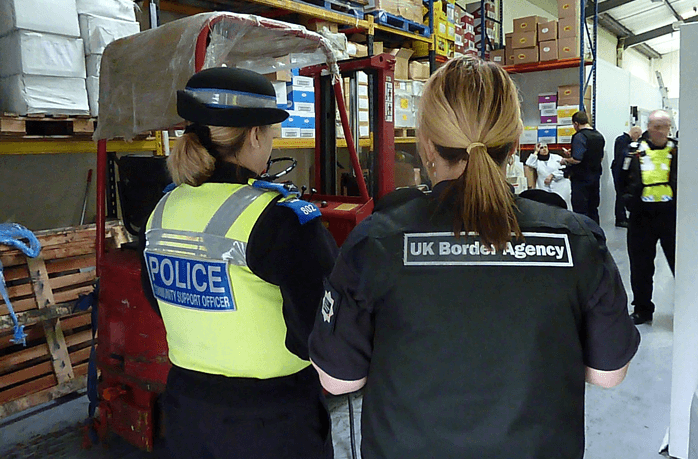Employers and Universities: Work with us?

60 Second Interview: Home Office change communications manager
Lauren works as a change communications manager at the Home Office, where she has been working on the changing border arrangements following the end of the Brexit transition period.
In this interview, she talks about her day-to-day work, the skills she uses in her job and shares some advice and tips on how you can pursue a career in the Civil Service.
 Name: Lauren Roberts
Name: Lauren Roberts
Employer: Home Office
Job title: Change communications manager (senior executive officer)
(Note: Interview provided prior to 1st January 2021)
What does your role involve?
My current role is working on transition arrangements to ensure the UK border is ready for the 1st January which is the end of the transition period. I am responsible for working with border force operational colleagues to test new policy and processes, and feed potential implications back to ministers.
What do you do on a day-to-day basis?
On a day-to-day basis I can have anything from two to five hours of meetings. Many meetings in this current role last two hours which has taken some adjusting. My primary role is stakeholder management and providing a two-way communications approach between stakeholders and ministers. I produce board reports based on data collected from stakeholders. For example, each region in England provides a readiness rating against their arrangements for 1st January against a number of different categories. I compile this and evaluate it to establish key risks. I also act as a "virtual member" of a work stream whereby each individual project (e.g. immigration negotiations) has a team made up of people with different backgrounds and we work together to achieve the change.
What subjects did you study at school?
Religious studies, English literature, history
How do you use your knowledge of religious studies in your role?
The main knowledge base I use from religious studies is how politics can affect people of various religions in different ways. I think the most relevant topics I learnt which have helped inform my role are on religious extremism and on the prejudice faced by people from other countries who practise certain religions. Particularly recently, with the migrant crisis, it has been interesting to see how these issues are dealt with in a political landscape.
I have also worked on a number of hard-hitting campaigns where knowledge of religious beliefs has been particularly useful with our stakeholders. Having worked on a campaign about the cultural practice of FGM (female genital mutilation), I was able to employ the knowledge I had about religious beliefs from my degree and approach this difficult issue with respect.
How did you adjust to being in a workplace? Do you have any tips on staying organised, time-management and working in a team?
Working in the centre of government is very fast paced. It definitely took me a while to adjust to this way of life. I think teamwork is the key to success in so many jobs. Being able to build solid relationships with people to help support your development and to help you in areas where you may be less capable is really valuable. In terms of staying organised, regular one-to-one sessions with your line manager are important to make sure you’re on track and not missing deadlines. Online calendars have also been my saviour, as well as tools such as Trello boards where you can look at all the things you are working on at once and set their progress and timescales.
What are the two most important transferable skills you use in your role?
Communication and analysis.
Did you always want to do this job?
Not particularly. I originally wanted to go into law, but I am now working for a law enforcement agency within Border Force. I am genuinely interested in the job I do and the outcomes I’m trying to achieve.
What other jobs do your interests, skills and experience lend themselves to?
Teaching, marketing, project management.
What advice do you have for someone who wants to do your role?
Be open minded. Push yourself and be visible.
Finally, do you see your career changing in the next five to ten years and if so, how do you see it changing?
I plan to stay in the Civil Service for the long term. The beauty of the Civil Service is there are so many different avenues to go down. There are so many different departments and arms-length bodies which lead to a vast array of experiences from supporting whale conservation to travelling overseas with Government International and living in Dubai or Moscow! There are also so many opportunities for career development and many different programmes to help you with progress in your career.
Find out more about jobs in the Civil Service in our guide to Civil Service careers.
